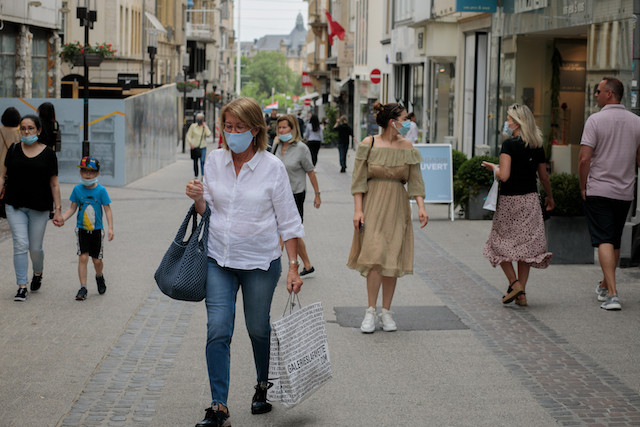As of 11 January, non-essentials shops, hairdressers and the like as well as cultural venues in the grand duchy are allowed to reopen their doors under hygiene measures outlined by prime minister Xavier Bettel (DP) and health minister Paulette Lenert (LSAP) during a press conference on 5 January.
Although the new measures should come as a relief to Luxembourg shopkeepers who had to close their doors on 26 December, it comes to the dismay of business owners across the border. German chancellor Angela Merkel last week announced that the country-wide lockdown, including the closure of all non-essential shops, would be tightened and extended until 31 January in a bid to slow down the rapid spread of the coronavirus in Germany.
The contrasting rules have prompted concern that people in the border region will take advantage of the lighter restrictions in the grand duchy.
“Economically this is a difficult situation for us, but I think this is also dangerous in the context of the number of infections. If it is allowed over there, but forbidden here, infection rates might rise again,” Patrick Sterzenbach, president of the City-Initiative Trier, the local trade association, told RTL Luxembourg.
It is not the first time that the differences in covid-19 restrictions in the greater region have caused conflict in the greater region.
Back in November, when Belgium and France returned to stricter lockdowns, Luxembourg businesses benefitted from an increasing number of customers from across the borders, as shops and restaurants remained open in the grand duchy. As a result, Belgium’s interior minister Annelies Verlinden urged citizens to stay at home and show solidarity with local entrepreneurs by not shopping abroad.
Earlier during the pandemic, Luxembourg on the other hand had criticised the unilateral decision of its neighbours to close its borders, and restaurants this side of the border complained when eateries in Germany were allowed to reopen ahead of them in the summer.
With non-essential shops open in Belgium and a 6pm curfew for the neighbouring French Grand Est region currently in place, it remains to be seen in the upcoming days what impact the reopening of shops in Luxembourg will have on the consumer behaviour of cross-border shoppers.
